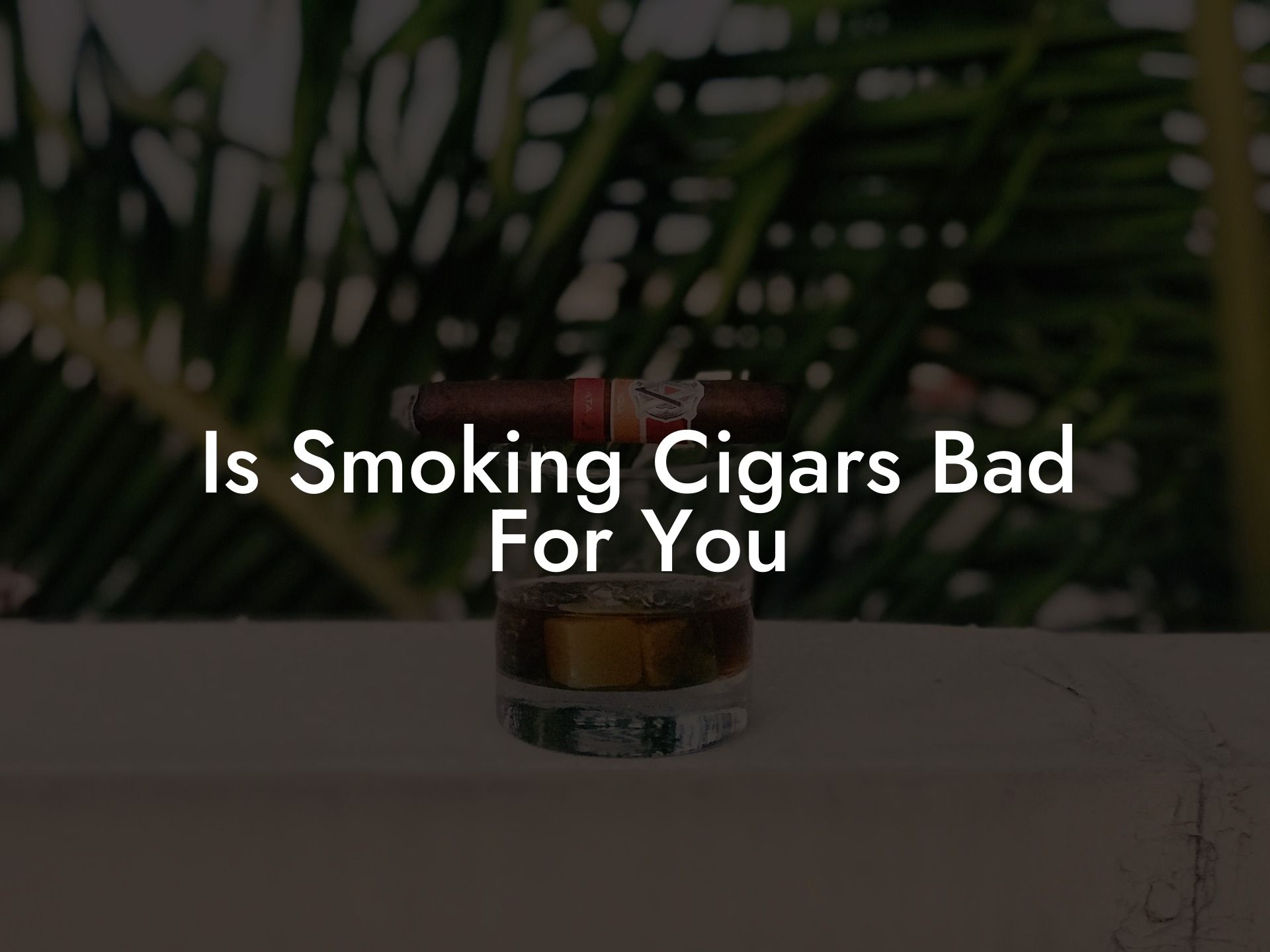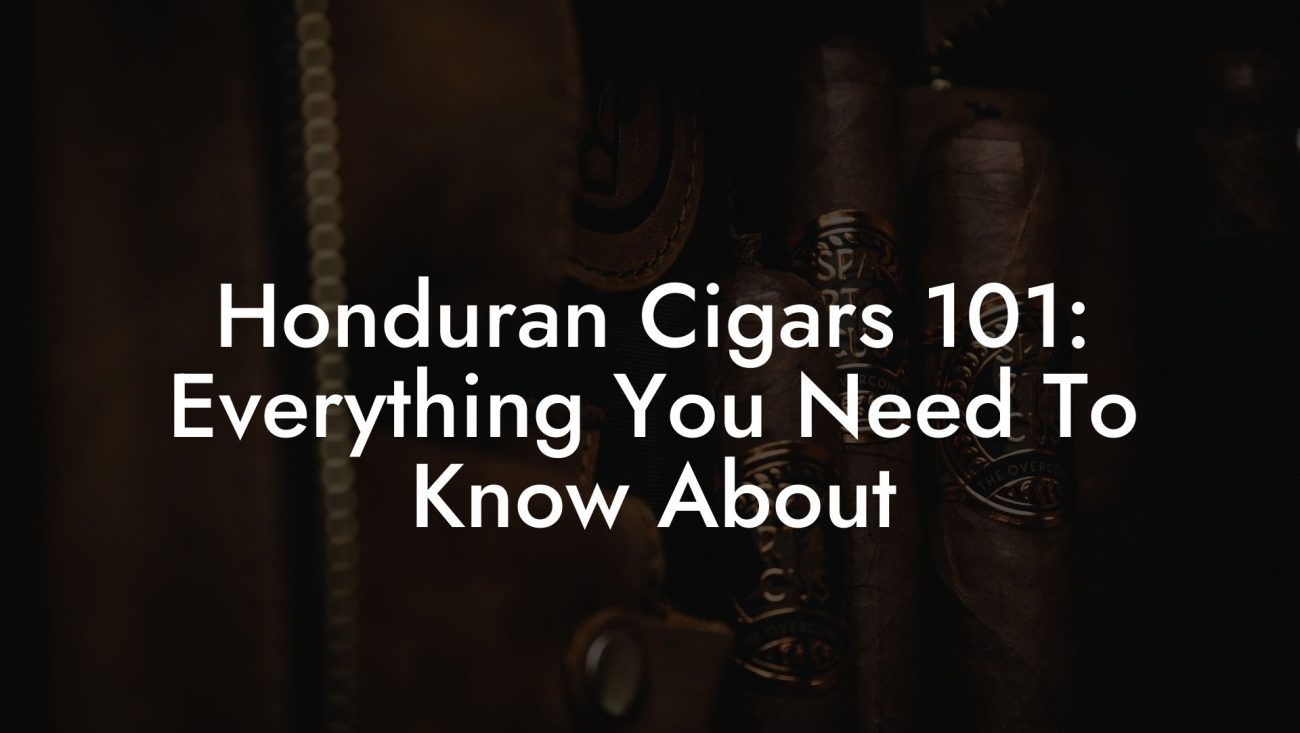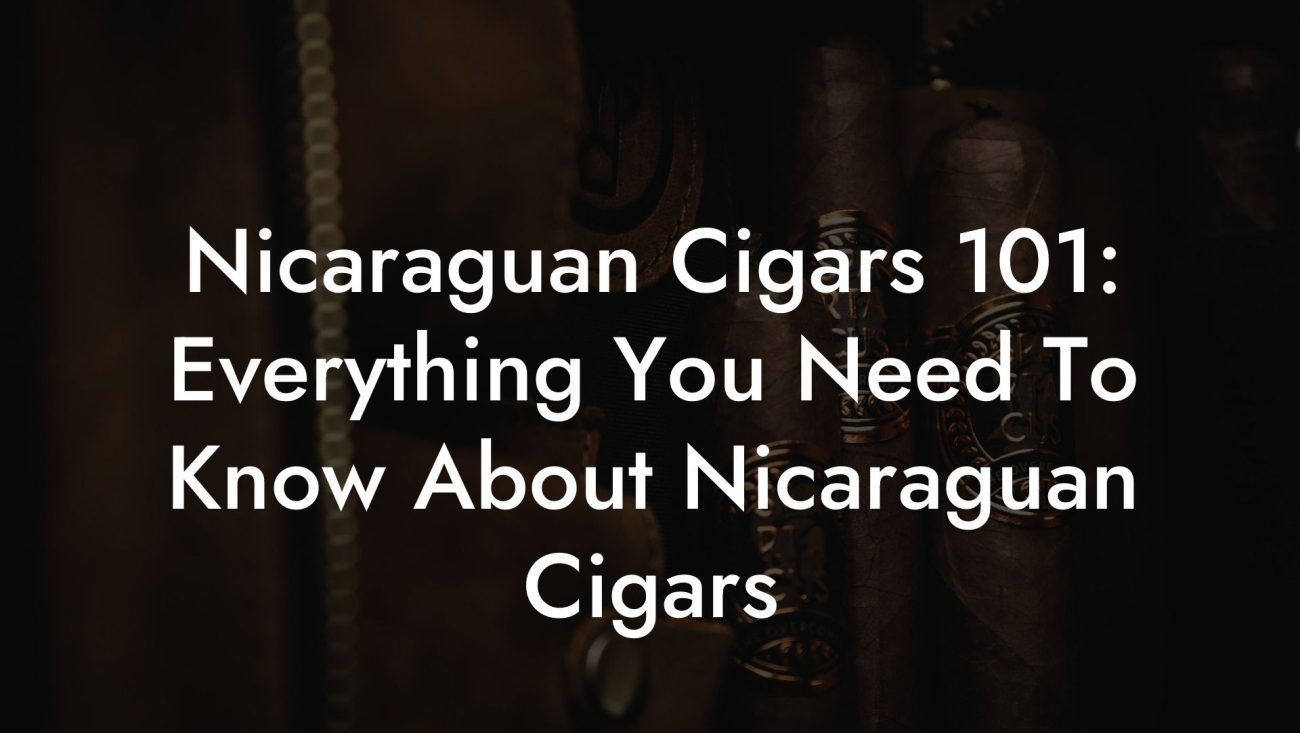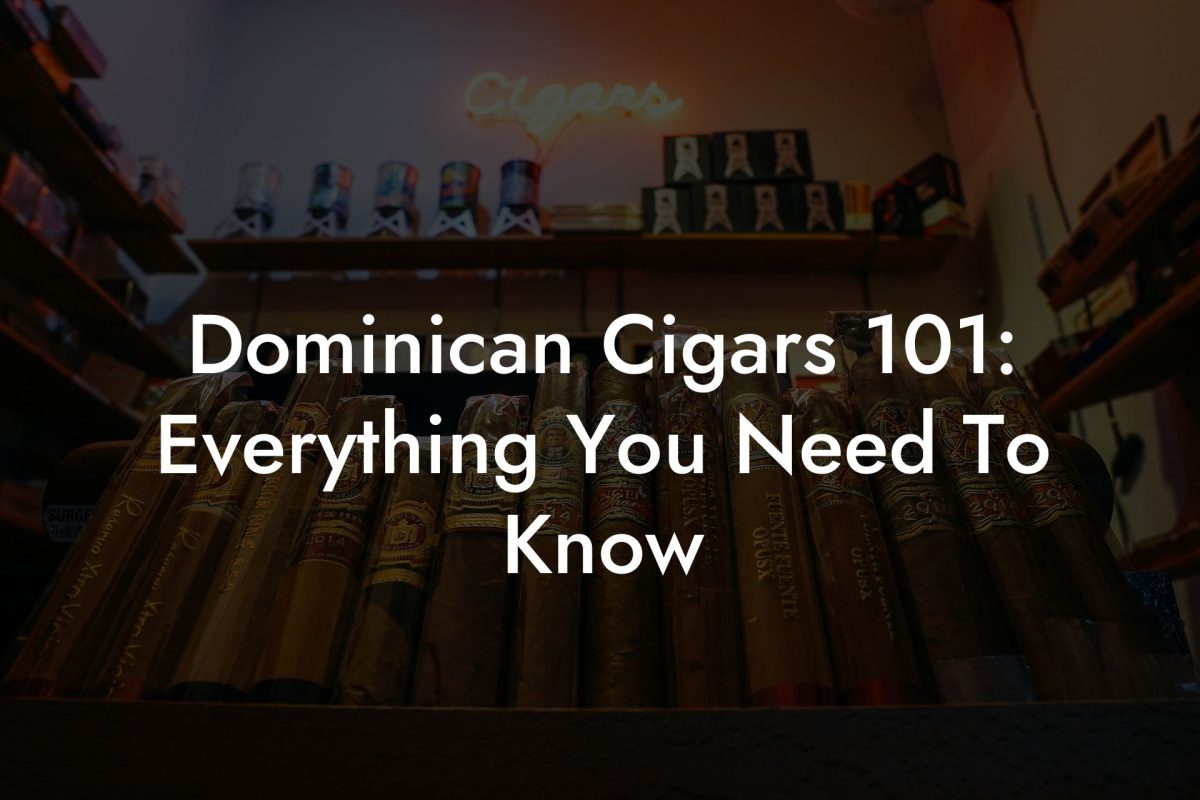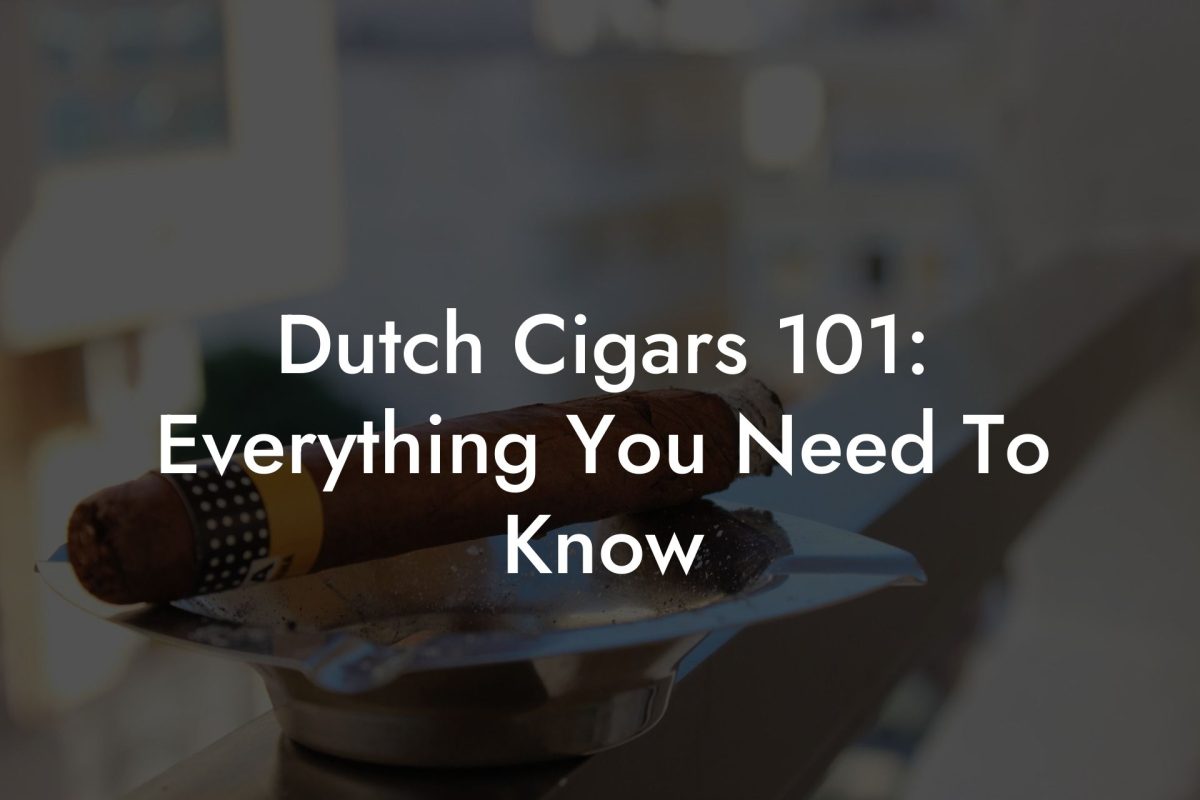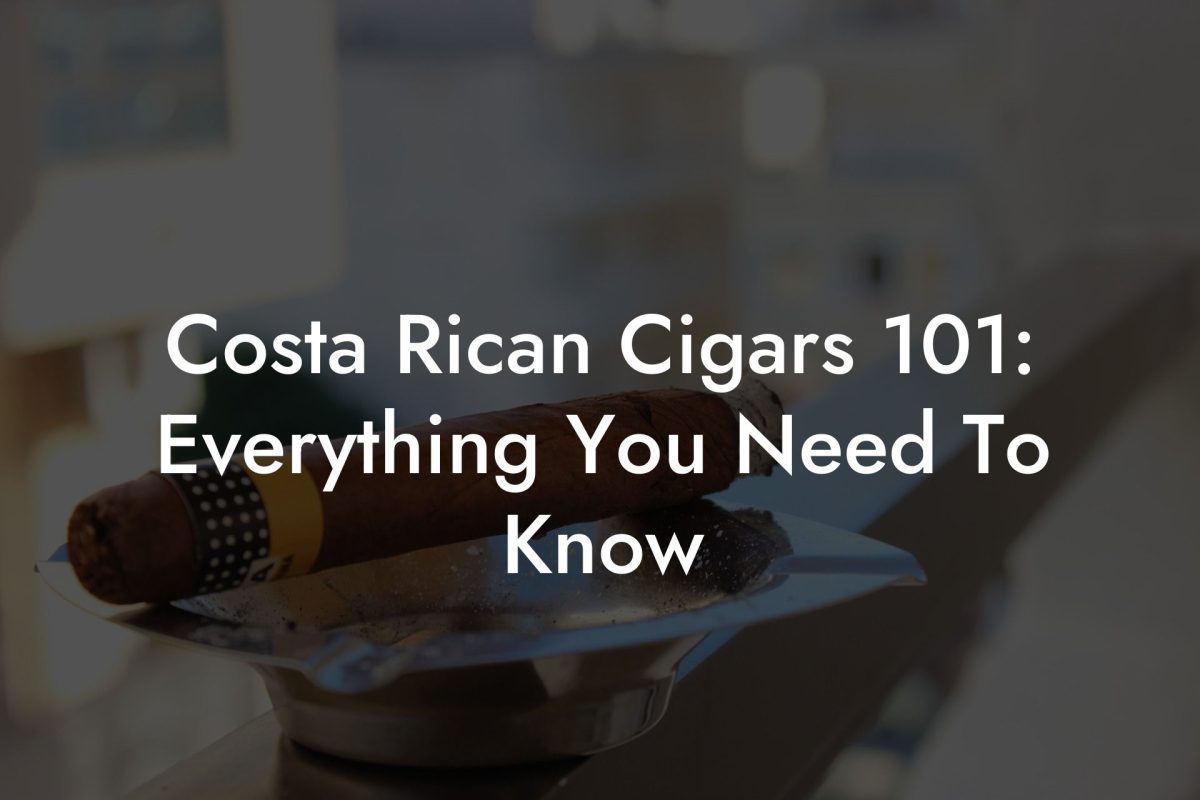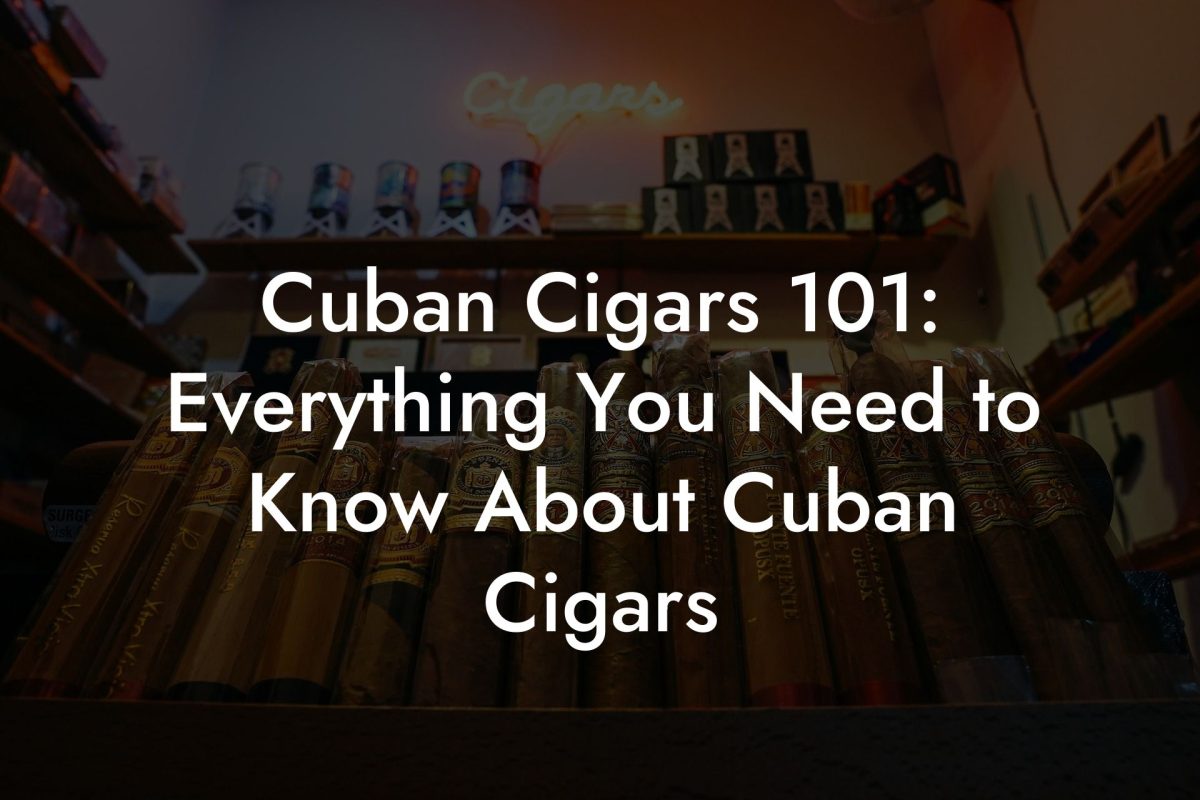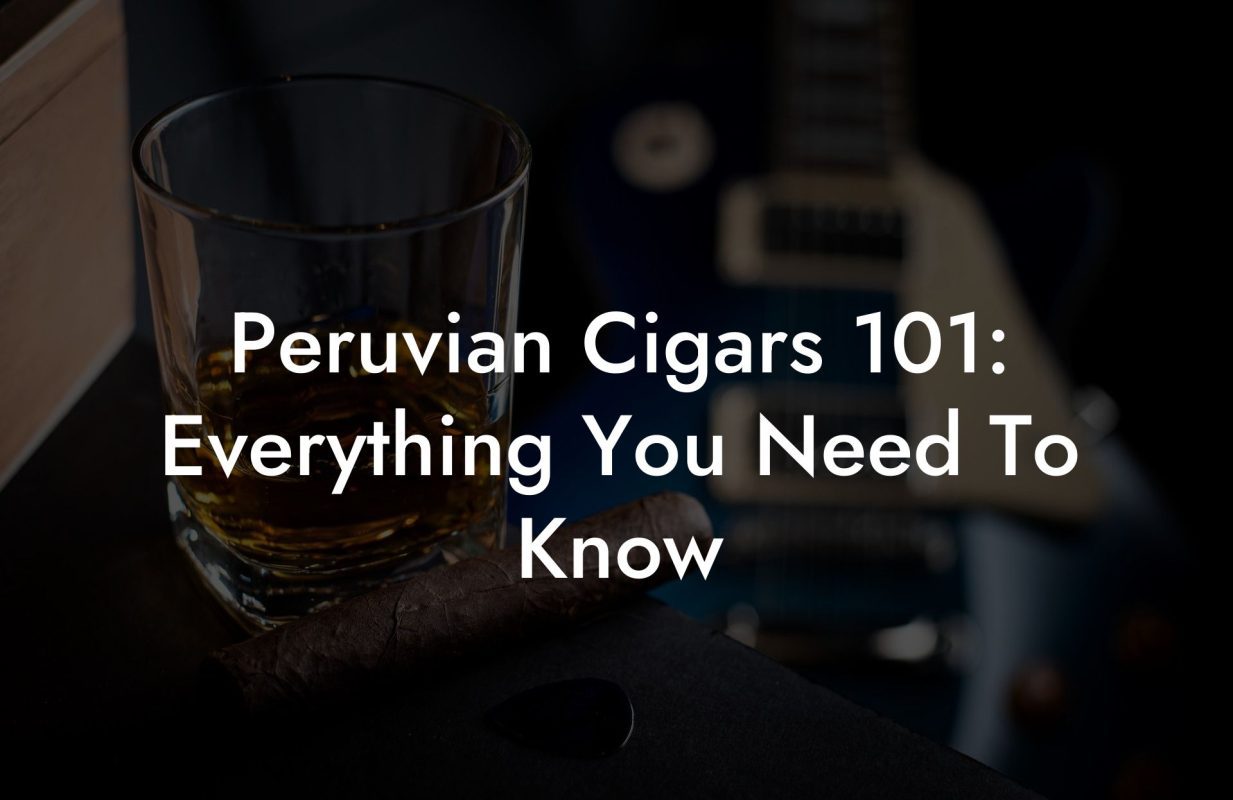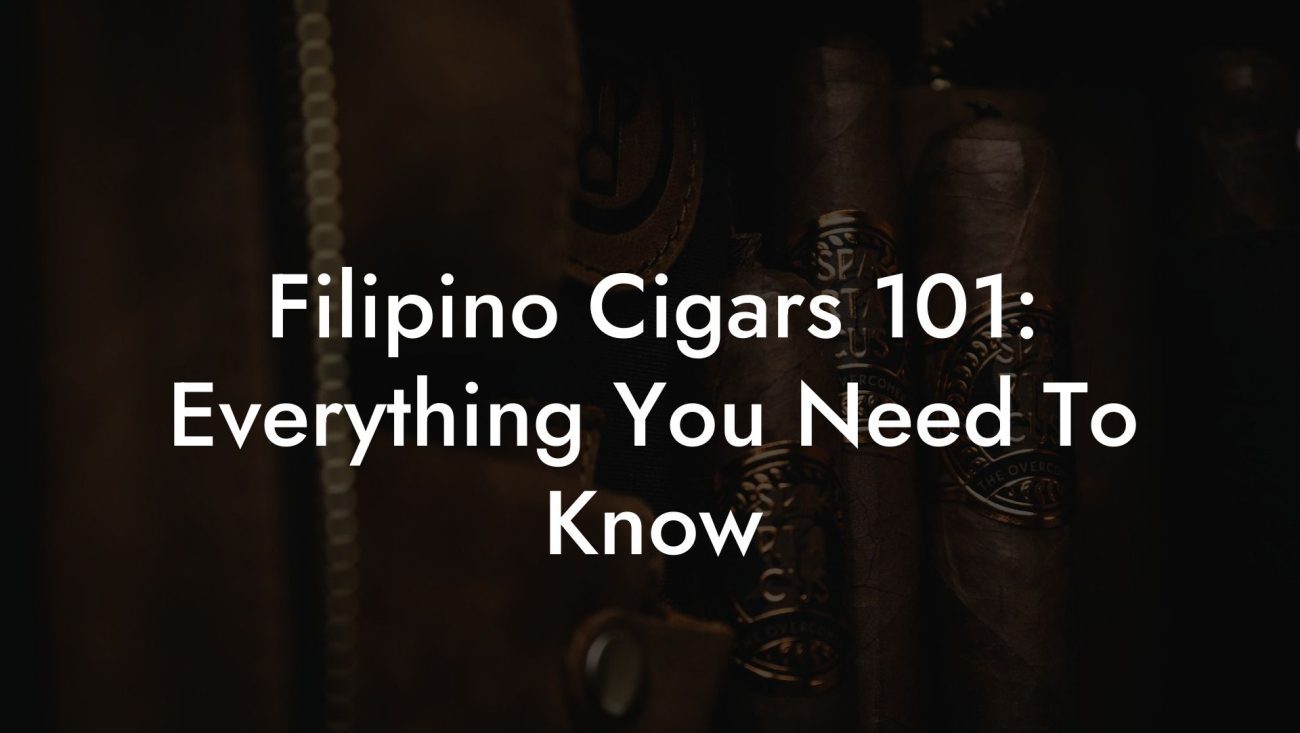Ever wondered if smoking cigars is as cool as it looks on Instagram or if it’s secretly plotting against your health? Let’s break down the mystique, the buzz, and the science behind puffing on cigars, with a splash of humor, a sprinkle of facts, and a nod to the Gen-Z and millennial vibe that craves authenticity and transparency.
Is Smoking Cigars Bad For You Table of Contents
The Cigar Conundrum: History, Culture, and the Modern Appeal
What Exactly Is a Cigar? Demystifying the Classic Smoke
The Health Risks: What Science Says About Cigar Smoking
Regular Versus Occasional: Does Moderation Make a Difference?
The Science Behind the Smoke: How Cigars Affect Your Body
Cultural Myths vs. Modern Realities: Debunking Cigar Smoking Misconceptions
Cigars Versus Cigarettes Versus Vaping: A Comparative Analysis
Quitting or Cutting Back: What Options Do You Have?
Resources and Community Support: Your Next Steps
The Social Dynamics of Cigar Smoking in a Modern World
Breaking the Habit: Strategies for Managing Nicotine Cravings
Smokers’ Myths vs. the Harsh Realities: What You Need to Know
Verifying Facts: What Research and Experts Say
Alternatives, Harm Reduction, and Embracing a Healthier Lifestyle
Your Journey to Informed, Empowered Choices
FAQs: Unpacking the Truth Behind Cigars and Health
Embrace Informed Choices: The Intersection of Passion and Health
The Cigar Conundrum: History, Culture, and the Modern Appeal
Cigars have long been the emblem of luxury, sophistication, and celebration. From classy gentlemen in vintage films to modern-day influencers flaunting their lifestyle on social media, cigars carry an aura of exclusivity. But behind that stylish veneer lies a story that’s as complex as the smoke swirling around a celebratory toast.
Historically speaking, cigars were once the realm of aristocrats and high-flyers, used to mark major life events or seal important deals. Today, however, cigars have made their way into the hearts of a much younger audience, Gen Z and millennials, who see them as a symbol of leisure, rebellion, and even self-expression. The art of cigar smoking has evolved, embracing modern trends, innovative flavors, and a vibrant community that discusses everything from the best pairings to smoking etiquette.
While many argue that puffing on a stogie in moderation can be part of a relaxed lifestyle, the critical question remains: Is smoking cigars bad for you? Understanding this multi-layered issue requires diving into cultural history, scientific insights, and the realities of modern consumption patterns.
What Exactly Is a Cigar? Demystifying the Classic Smoke
Before we dive into health risks, let’s decode what a cigar is and why it holds such sway over many enthusiasts. Unlike cigarettes, cigars are made from a bundle of fermented tobacco leaves wrapped in a tobacco leaf or a similar substance. The process of aging and fermenting these leaves creates a complex flavor profile that can range from mild and aromatic to robust and intense.
This rich complexity is what draws cigar aficionados into a sensory experience. For the uninitiated, a cigar isn’t just about nicotine, it's about savoring the intricate blend of aroma, flavor, and tradition. The ritual of selecting a cigar, cutting it, lighting it, and then letting the experience unfold is a multi-sensory journey that transcends a simple puff.
But with every deep, satisfying drag comes an important question: at what cost do these smoky delights come? Stick with us while we blend science, history, and a dash of humor to reveal the potential downsides of cigar smoking.
The Health Risks: What Science Says About Cigar Smoking
Let’s get real: when it comes to health, cigars are a mixed bag. On one hand, many cigar smokers claim to enjoy their puffed escapes in moderation, but on the other, medical research doesn’t mince words about tobacco’s impact on your body.
Cigars contain nicotine, tar, and a host of other chemicals that can damage your health over time. Here’s a look at some of the major health risks:
- Cancer Risk: Just like cigarettes, cigars produce carcinogens during combustion. Regular inhalation of these chemicals can increase the risk of developing cancers, especially in the lungs, mouth, throat, and esophagus.
- Cardiovascular Issues: The nicotine in cigars isn’t just addictive, it can also constrict blood vessels, raise your heart rate, and increase blood pressure, all of which contribute to a higher risk of heart disease and stroke.
- Respiratory Problems: Regular exposure to cigar smoke can lead to chronic respiratory issues such as bronchitis and reduced lung function, even if you’re not inhaling deeply every time.
- Addiction and Dependence: It might feel relaxing in the moment, but nicotine is a well-known addictive substance. Over time, the occasional cigar may turn into a regular habit, making cessation more challenging.
Beyond these, scientific studies suggest that even occasional cigar smoking is linked with an increased risk of oral cancers and gum disease. The risk isn’t confined solely to heavy smokers; the chemistry of tobacco is notorious for its stealthy, cumulative damage.
Of course, it’s important to note that scientists differentiate between the risks faced by habitual, inhaled smokers and those who savor their cigar without deep inhalation. But make no mistake, these risks are real and deserve your attention.
Regular Versus Occasional: Does Moderation Make a Difference?
One of the most commonly debated topics among cigar lovers is whether “social smoking” is any less harmful than being a daily smoker. The short answer: moderation may reduce risk, but it doesn’t eliminate it entirely.
Many aficionados argue, “It’s only a cigar on the weekends!” However, here’s the nuanced reality:
- Frequency and Exposure: Even occasional exposure to tobacco smoke can introduce carcinogens to your system. The human body is remarkably resilient, but repeated exposure, even infrequently, accumulates over time.
- The Inhalation Factor: Traditional cigar smoking typically involves holding the smoke in your mouth rather than inhaling deeply into your lungs. This practice may reduce lung cancer risk but does little to mitigate risks associated with oral cancers and gum disease.
- Secondhand Smoke: Even if you’re not inhaling, the smoke released into the air can affect those around you, friends at the lounge, family members, or coworkers in a poorly ventilated space.
So, while occasional cigar smoking might seem like a harmless indulgence, understanding that the risk exists, even if at a lower level, is crucial. The idea of “moderation” should not be mistaken for “risk-free.”
The Science Behind the Smoke: How Cigars Affect Your Body
Let’s take a peek under the hood and see what happens in your body when that cigar is lit. The nicotine hit is immediate, giving a transient feeling of euphoria, stress-relief, and sometimes, creativity. But here’s what the body endures:
The Nicotine Rush and Brain Chemistry
Nicotine binds to receptors in the brain, releasing dopamine, a neurotransmitter that triggers the reward center, making you feel good for a moment. It’s the same mechanism that powers other tobacco products, leading many to become hooked before they realize it.
Impact on the Respiratory System
Even if you’re not inhaling deeply, the chemicals in cigar smoke interact with the sensitive tissues in your mouth and throat. Over time, this can lead to chronic irritation, an increased risk of infections, and a higher likelihood of developing cancers specific to those regions.
Cardiovascular Effects
The spike in heart rate and blood pressure from nicotine is like a mini stress test for your cardiovascular system with every puff. Repeated stress on your heart and blood vessels can lead to cumulative damage, setting the stage for heart disease.
In essence, each cigar you light is a delicate balance between a sensory experience and a potential challenge to your health. The brain loves the fleeting pleasure, while the body slowly pays the price.
Cultural Myths vs. Modern Realities: Debunking Cigar Smoking Misconceptions
Cigar smoking is shrouded in myths. Some believe it’s a harmless luxury reserved for special occasions, while others maintain that any tobacco use is a ticket to inevitable health decline. Let’s clear the smoke:
Myth #1: “A Cigar a Day Won’t Hurt”
Just like the old saying, “An apple a day keeps the doctor away,” some cigar smokers claim that their weekly smoking routine isn’t harmful. But scientific evidence suggests that even infrequent tobacco exposure can have negative effects.
Myth #2: “I Only Smoke on Special Occasions”
Saving cigars for special events might reduce overall exposure compared to daily smoking, but it still introduces harmful compounds into your system. Occasional indulgence is better than heavy smoking, yet the risks persist, no matter the frequency.
Myth #3: “It’s Just a Hobby, Not a Habit”
For many, cigar smoking starts as a leisurely hobby. However, the addictive properties of nicotine can turn a casual pastime into a habit before you even realize it. The key is knowing your limits and staying informed.
Recognizing these myths empowers you to make better-informed decisions about your smoking habits and overall health.
Cigars Versus Cigarettes Versus Vaping: A Comparative Analysis
In today’s world where lifestyle choices are as diverse as our Spotify playlists, comparing cigars to cigarettes and vaping is a conversation that sparks lively debate. Each mode of tobacco consumption comes with its own set of health risks and cultural connotations.
Cigarettes: The Daily Drag
Cigarettes are designed for quick, frequent nicotine fixes. They are typically inhaled deeply, delivering nicotine rapidly to the bloodstream while exposing the lungs to a barrage of harmful chemicals. The cumulative daily exposure often translates into a higher risk of lung and cardiovascular diseases.
Cigars: The Leisurely Indulgence
In contrast, cigar smoking tends to be a more measured experience. Smokers typically hold the smoke in the mouth, savoring the flavor rather than inhaling deeply. While this might reduce some risks, the exposure to carcinogens remains a serious concern.
Vaping: The New Kid on the Block
Vaping products have risen in popularity, particularly among younger demographics looking for a “safer” alternative. However, vaping isn’t without controversy. While most agree that e-cigarettes eliminate some of the destructive combustion by-products found in traditional tobacco, concerns over additives, flavorings, and long-term effects still persist.
The choice between cigars, cigarettes, and vaping comes down to personal preference and risk tolerance. Yet, the bottom line is that all involve nicotine, with its attendant risks, so stay informed and choose wisely.
Quitting or Cutting Back: What Options Do You Have?
For those who find that cigar smoking isn’t the charming indulgence it once seemed or are simply ready for a healthier lifestyle change, there are plenty of resources and strategies to help you quit or cut back.
Nicotine Replacement Therapies (NRT): Options like patches, gum, and lozenges can help manage cravings while gradually reducing dependence.
Behavioral Support: Whether it’s a support group, therapy, or just a kickass friend who helps you stay accountable, behavioral strategies are key to overcoming nicotine addiction.
Prescription Medication: Medications such as varenicline or bupropion can be prescribed by your doctor to help reduce cravings and withdrawal symptoms.
Mindfulness and Stress Management: Incorporating stress-reduction techniques, like meditation, yoga, or even a good workout, can ease the transition away from smoking by addressing one of its primary triggers.
The journey away from tobacco is personal and may require a tailored combination of methods. Importantly, even if you aren’t ready to quit completely, reducing frequency can lead to substantial improvements in your health over time.
Resources and Community Support: Your Next Steps
Whether you’re a devoted aficionado or someone reconsidering the lifestyle of cigar smoking, tapping into support resources is essential. For those on the fence or in need of guidance, here are some next steps:
- Medical Consultation: Start with a visit to your healthcare provider. A professional can provide insights into how tobacco is affecting your body and offer guidance tailored to your needs.
- Online Communities: Platforms such as Reddit, Facebook groups, and specialized forums are filled with cigar enthusiasts and ex-smokers who share tips, success stories, and advice on cutting back or quitting.
- Smoking Cessation Programs: Many local health services and non-profit organizations offer free or low-cost cessation programs. These can include counseling sessions, smartphone apps, and hotlines designed to support your journey.
- Mindfulness and Wellness Centers: Exploring alternative stress-management techniques through yoga studios, meditation classes, and community wellness centers can provide a holistic approach to reducing your reliance on nicotine.
- Educational Resources: Books, documentaries, and blog posts that delve into the science of addiction and the effects of smoking can help you make an informed decision. Knowledge is power!
Embracing these resources not only enhances your personal journey but also connects you to a community that understands your challenges and triumphs. It’s all about finding that balance between informed choices and lifestyle fulfillment.
The Social Dynamics of Cigar Smoking in a Modern World
Cigar smoking isn’t just a personal habit, it intersects with social dynamics, identity, and even trends in popular culture. For Gen Z and millennials, the decision to smoke (or not smoke) cigars is often wrapped up in self-expression.
Social media is awash in images of smoke rings, plush lounges, and the occasional witty caption about living life on the edge. Yet beyond the glossy visuals, the conversation about cigars is transforming. Increasingly, younger consumers are prioritizing health and wellness, questioning long-held traditions, and seeking alternatives that align with a more informed lifestyle.
There’s a growing trend toward mindful smoking, where the ritual of enjoying a cigar is balanced with awareness of its health implications. This new wave of cigar enthusiasts is less about ostentatious displays and more about enjoying a sensory experience while staying informed about the risks.
Breaking the Habit: Strategies for Managing Nicotine Cravings
It’s no secret that nicotine has a powerful hold on its users. For some, a cigar is more than leisure, it becomes a stress-reliever, a source of comfort in challenging times, or even an unintentional crutch. Understanding and managing these cravings is essential if you’re considering cutting back.
One effective strategy is to replace the ritual. Instead of reaching for a cigar, try engaging in an alternative activity that gives you similar satisfaction. This could be a brisk walk, a creative hobby, or even a session of deep breathing exercises. The key is to recognize the triggers, social situations, stress, even boredom, and develop coping mechanisms that don’t involve tobacco.
Additionally, consider tracking your smoking patterns. Reflect on when and why you light up, then experiment with healthier substitutions until you find a rhythm that works for you. This approach, often referred to as “habit reversal,” can make a big difference, especially when combined with support from friends, family, or smoking cessation programs.
Smokers’ Myths vs. the Harsh Realities: What You Need to Know
It’s easy to get lost in myths, “I only smoke for the flavor,” “Smoking a cigar isn’t like chain-smoking,” or “Moderate smoking has no impact.” While a relaxed attitude might seem appealing, the reality is that every puff introduces toxins into your body and sets off processes that you may not feel today but that can have long-term consequences.
Medical experts concur: there is no completely safe level of tobacco consumption. The best path to full health is clear, avoid smoking altogether. If that’s not feasible right now, embracing strategies to minimize harm, staying informed, and periodically re-evaluating your habit are critical steps.
It’s all about empowering yourself with the knowledge to make a choice that balances lifestyle preferences with health concerns. Whether you decide to continue as is or choose to reduce your consumption, understanding these dynamics helps you navigate a world where every choice carries weight.
Verifying Facts: What Research and Experts Say
Scientific literature consistently associates cigar smoking with elevated levels of carcinogens, cardiovascular strain, and respiratory issues. Experts caution that even indirect exposure to cigar smoke, through secondhand smoke, poses risks not only to the smoker but also to those around them.
Leading health organizations recommend that individuals who choose to smoke cigars do so with caution and awareness, setting boundaries such as limiting frequency and avoiding deep inhalation. More importantly, ongoing research constantly refines our understanding of the precise health implications, delivering a clear message: informed choices are paramount.
Whether you’re reading up on peer-reviewed studies or browsing articles from reputable health institutions, the consensus is one of vigilance. Armed with facts, you can better weigh the lifestyle allure of cigars against the potential health ramifications.
Alternatives, Harm Reduction, and Embracing a Healthier Lifestyle
If you’re seeking the cigar lifestyle without the full-blown risks, consider exploring harm reduction strategies and alternatives. Here are several ideas that may resonate:
- Switching to a Lighter Alternative: Some cigar smokers consider switching to products that offer a satisfying flavor profile without traditional combustion, although each alternative comes with its own set of risks.
- Mindful Smoking Practices: By restricting your smoking to social events and ensuring you’re in well-ventilated areas, you can reduce the collateral harm of secondhand exposure, even if personal risks remain.
- Integrative Health Practices: Align your cigar indulgence with a well-rounded approach to wellness by combining it with sound nutrition, regular exercise, and stress management techniques. This holistic outlook won’t erase the risks but can help mitigate them.
- Engaging in Cessation Programs: If you’re leaning toward cutting back or quitting entirely, counseling, nicotine replacement therapies, and mobile apps designed for smoking cessation can be game-changers.
Embracing a healthier lifestyle is about balance, recognizing what you enjoy, understanding the associated risks, and taking actionable steps to protect your well-being.
Your Journey to Informed, Empowered Choices
At the end of the day, deciding whether to indulge in cigars is a personal choice. It’s about weighing tradition against modern health concerns, flair versus function, and immediate satisfaction versus long-term wellness. For Gen Z and millennials, the modern narrative is clear: informed, empowered choices are leading the charge in self-care and mindful living.
By educating yourself about the risks, staying updated with reliable research, and engaging in open conversations with peers and experts, you can navigate the complex world of cigar smoking with your eyes wide open. Whether you choose to smoke occasionally, transition to healthier alternatives, or embrace a smoke-free life entirely, the ultimate goal is to craft a lifestyle that honors both your passions and your well-being.
Remember, every choice is a step in your journey. And knowing the facts means you’re already ahead in the race for a healthier, more informed life.
FAQs: Unpacking the Truth Behind Cigars and Health
Dive into these frequently asked questions to get quick answers on the most common concerns about cigar smoking and its health implications.
1. Is smoking cigars bad for your health?
Yes, cigars contain nicotine and harmful chemicals that can increase the risk of cancer, cardiovascular disease, and respiratory problems, even if smoked occasionally.
2. How do cigars differ from cigarettes in terms of health risks?
Cigarettes are designed for inhalation and are usually smoked more frequently, leading to higher exposure to harmful chemicals. Cigars, while typically not inhaled deeply, still pose risks, especially for oral cancers and gum disease.
3. Can smoking cigars occasionally really be safe?
Occasional cigar smoking may lower the risk compared to daily smoking, but it is not entirely risk-free. The toxins and carcinogens remain harmful, even at low exposure levels.
4. Are there any benefits to smoking cigars?
While enthusiasts often speak about the ritualistic and social aspects of cigar smoking, these do not outweigh the health risks. The act of smoking cigars is not medically beneficial.
5. What harm reduction strategies exist for cigar smokers?
Harm reduction strategies include limiting frequency, avoiding deep inhalation, ensuring good ventilation to reduce secondhand exposure, and exploring smoking cessation programs if you wish to quit.
6. How can I quit smoking cigars?
Quitting can be achieved by using nicotine replacement therapies, seeking behavioral counseling, and joining cessation programs. Mindfulness and stress management techniques also play a significant role.
7. Does secondhand smoke from cigars affect those around me?
Absolutely. Secondhand smoke can be harmful, exposing others to toxic chemicals and increasing their risk for respiratory and cardiovascular issues.
8. What do studies say about occasional cigar smoking?
Research indicates that even occasional exposure to cigar smoke increases the body’s exposure to carcinogens. Moderation may reduce but does not eliminate risk.
9. Are there healthier alternatives for enjoying a cigar-like experience?
Some alternatives include non-combustible nicotine products and flavored herbal cigars, though these alternatives come with their own health considerations. It’s best to consult a healthcare provider to weigh the risks and benefits.
10. Should I consult a doctor about my smoking habits?
Yes, consulting a healthcare provider can help you understand the impact of cigar smoking on your health and offer personalized advice on harm reduction or cessation strategies.
Embrace Informed Choices: The Intersection of Passion and Health
Whether you savor the occasional luxurious puff in a dimly lit lounge or are caught up in the cultural renaissance of cigar appreciation, doing so with full knowledge of the health implications is the ultimate mark of empowerment. Each choice you make, from how often you indulge to the environment you choose for your smoking ritual, forms part of a broader tapestry of personal well-being.
The world is evolving with data-driven insights into how lifestyle choices impact long-term health. In this era of transparency and informed decision-making, the power lies with you, armed with information, you can navigate the intricate balance between pleasure, social connection, and health.
For those who remain uncertain, the solution is clear: seek out reliable resources, consult experts, and weigh your options. This isn’t just about smoking cigars, it’s about embracing a lifestyle where informed choices lead to empowerment and well-rounded wellness.
So the next time you find yourself in a debate about whether smoking cigars is “bad for you,” remember that facts, science, and a bit of self-awareness are your best allies. Your journey towards an informed, balanced life is a dynamic narrative, one where each puff, each decision, contributes to the greater story of health, fulfillment, and authenticity.

